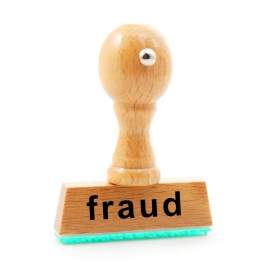
2 Types of Fraud Alert

What is a Fraud Alert?
A fraud alert is a security measure, employed by various financial institutions, such as banks or credit card companies, to inform their clients (customers or business entities) that their personal information or financial accounts have been breached. Fraud alerts, when employed, will show up on an individual’s credit report; this label will inform the issuing credit card company to engage in various security measures to thwart an individual from opening a new credit card account in your name.
A fraud alert will arise, for instance, if a credit card was opened in your name without your knowledge. These unfortunate instances, which are forms of identity theft, occur when an individual’s personal or financial information has been usurped. To limit the damages associated with these illegal acts and to inform an individual that their personal information has been breached; a fraud alert will be sent via mail, email, or over the phone that the individual should take immediate or investigative action to close the account.
A fraud alert is a fundamental security measure that must be enacted or initiated by the holder of a credit card or the owner of a checking account. Once enacted, the fraud alert will effectively prevent, through advanced notification on a credit report, the usurping of an individual’s personal information.
Types of Fraud Alerts:
Initial Fraud Alert: This type of fraud alert lasts for 90 days and is typically used when your credit or debit card information or your personal information has been compromised by a third party. Your information may be comprised from a variety of mediums or because of a number of situations; for instance, if you lose your wallet or have unknowingly engaged in a phishing scam, your credit card or personal information can be obtained by another individual. When this information is comprised, the criminal party has the ability to purchase products or goods (if the credit card information is obtained) or open new credit cards in your name (if your personal information was stolen). An initial fraud alert, when enacted, will require a creditor (companies who issue credit cards) to partake in advanced security measures to accurately verify the identity of the applicant—an initial alert may require the creditor to check the applicant driver’s license information or Social Security number.
Extended Fraud Alert: This type of fraud alert lasts for seven years and is typically employed by those individuals who have fallen victim to identity theft in the past. To engage in this particular prevention strategy an individual must obtain a police report or document that affirms that you have been victimized by identity theft in the past. When enacted, the extended fraud alert will require all creditors and financial institutions to contact your phone number when a new account is opened or a purchase is made.
Fraud Alert Limitations:
A fraud alert prevents criminals, specifically those engaging in identity theft from establishing new credit accounts in your name. That being said, a fraud alert in most cases will not prevent an individual from using your already established credit account. Therefore, if your credit card is stolen or lost, you must immediately contact your card issuer to effectively cancel the account. Furthermore, a fraud alert will not stop identity thieves from opening a new credit card account that does not require a credit check.



















